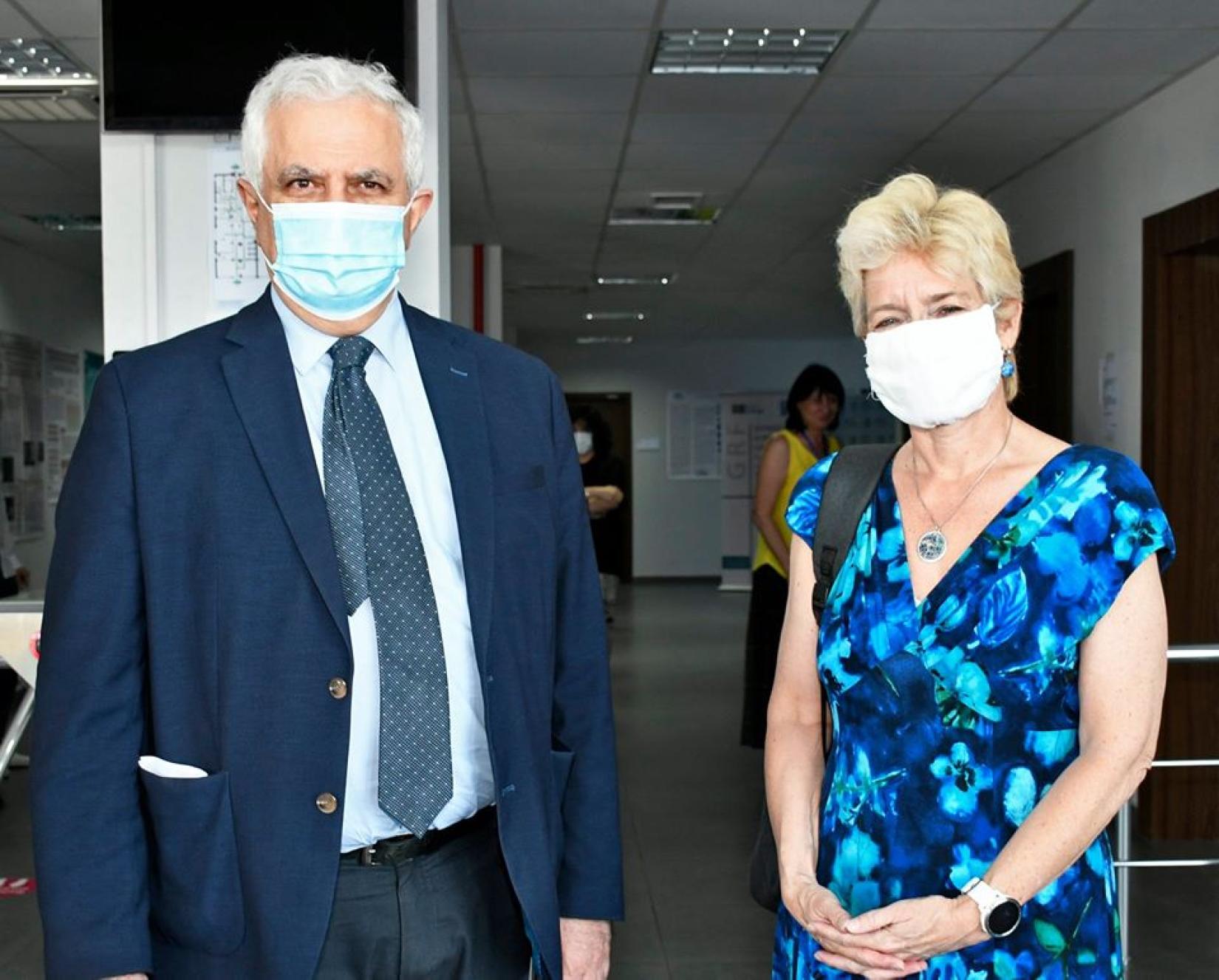Boosting Georgia’s public healthcare with digital solutions
02 July 2020
New learning system will enable thousands of medical staff to improve their skills in treating infectious diseases

Building on a successful response to the first wave of the COVID-19 pandemic, Georgia is taking urgent steps to ensure that its frontline medical personnel are prepared to respond to any potential second wave and other future health emergencies. As part of this effort, the United Nations Development Programme (UNDP) is joining hands with the Government of Sweden to support the National Center for Disease Control and Public Health (NCDC), the lead agency in Georgia’s pandemic response, in training 4,000 medical personnel across the country in enhanced infection prevention and control. The initiative relies on USD 150,000 in Swedish funding.
“Georgia has managed the first wave of the pandemic well, but the crisis is far from over,” said NCDC Head Amiran Gamkrelidze. “We must spare no effort to improve public healthcare and increase the professionalism of our medical staff to ensure full preparedness for future health emergencies. Not only will this new initiative enable us to continue coping with COVID-19; it will also benefit our disease prevention and control system well beyond the current crisis.”
The first wave of the pandemic showed that public health systems around the world need to be better prepared for health emergencies and more efficient in crisis response. In Georgia, the NCDC has taken a lead in educating medical personnel and staff throughout the country, drawing on the experience gained during the crisis.
With Swedish funding, UNDP will assist the NCDC in establishing an e-learning platform to provide doctors, nurses and administrative staff with an opportunity to attend training courses and certification programmes, communicate, exchange experience and receive practical advice from NCDC experts.
“Georgian doctors deserve respect and admiration for their professionalism and dedication during the pandemic,” said UNDP Head Louisa Vinton. “The new learning system will improve their ability to respond to health emergencies and also help close the gap between big cities and rural areas, where medical staff tend to have fewer resources.”
The new initiative covers 37 medical institutions and the NCDC’s 60 regional centres across Georgia. 3,000 medical workers from the clinics designated for COVID-19 treatment and 1,000 medical staff from regular healthcare institutions will be trained in health emergency response.
The training will also extend to the operators of a specialised hotline for medical professionals who will be trained in infection prevention and control.
The e-learning platform will operate through desktop and mobile applications, with a built-in chatbot and search engine, allowing for real-time consultations and exchange.
In addition, the NCDC will develop guidelines and manuals covering critical areas of public healthcare, such as infection prevention and control in medical institutions and everyday life, the environment and health, and the prevention and control of non-communicable diseases.
“Investments in public health are investments in development,” said Eric Illes, Head of Development Cooperation and Deputy Head of Mission at the Embassy of Sweden to Georgia. “We are proud to support the Georgian Government and enhance public healthcare in very tangible ways that will save lives in emergencies.”
Assistance to the NCDC is just one component of a broader six-year programme of governance reforms in Georgia that UNDP is implementing with USD 5 million in funding from Sweden.



